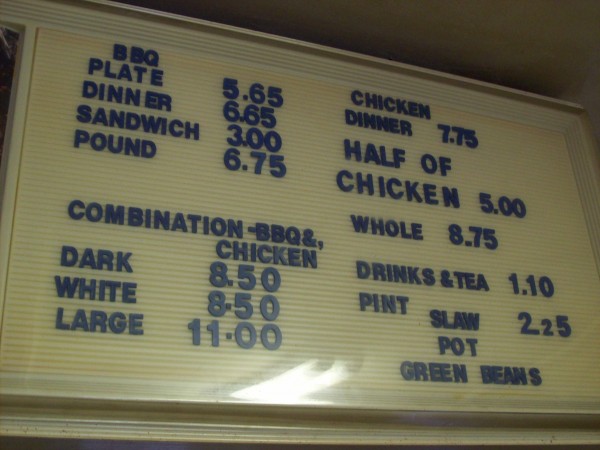
Barbecue is to the American south what wine and cheese are to Europe. That is, a deeply ritualistic cultural practice that differs greatly by region and, more subtly, by micro-locality. Travel across the south and one will find different cuts of meat, cooking techniques, sauces, side dishes and beverages. Or so says John Shelton Reed, Sociology Professor Emeritus at the University of North Carolina, Chapel Hill, in Calvin Trillin’s recent article “In Defense of the True ‘Cue,” for The New Yorker. The article zeroes in on the “Campaign For Real Barbecue,” an effort to preserve traditional North Carolina barbecue and what Professor Reed believes to be it’s vital role in North Carolina social life.
In his darker moments, he sees his beloved barbecue joints being replaced by the soulless outposts of some franchise operation he calls the International House of Barbecue, which uses “barbecue” to mean meat with bottled barbecue sauce on it—your choice of meat, your choice of sauce. Just as the Campaign for Real Ale believes in “well run pubs as the centres of community life,” John Reed believes that the traditional barbecue joint is a place in the South where people from all walks of life and all races, from the sheriffs’ deputies to the construction workers to the town bankers, gather to eat the local specialty at a price just about anybody can afford. (A barbecue sandwich at Stamey’s goes for three dollars and twenty-five cents.) A passage in “Holy Smoke” [one of Reed’s books] says, “North Carolina barbecue is an edible embodiment of Tradition. For many of us, barbecue symbolizes Home and People.”
Read the full article here.

Comments